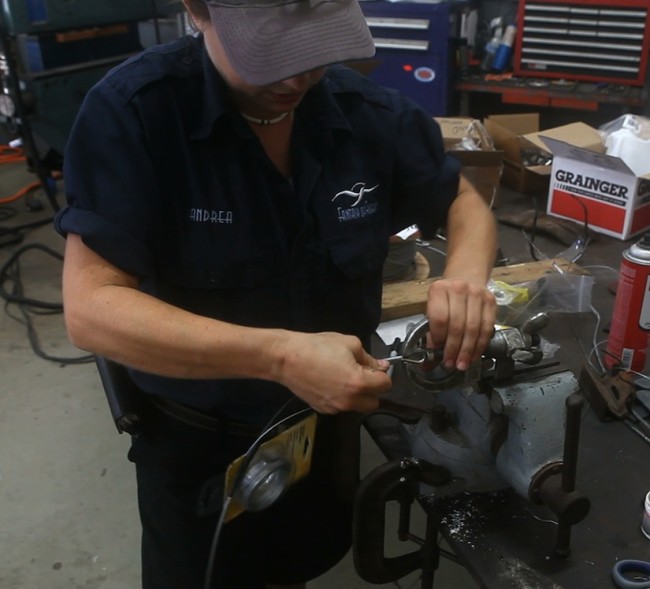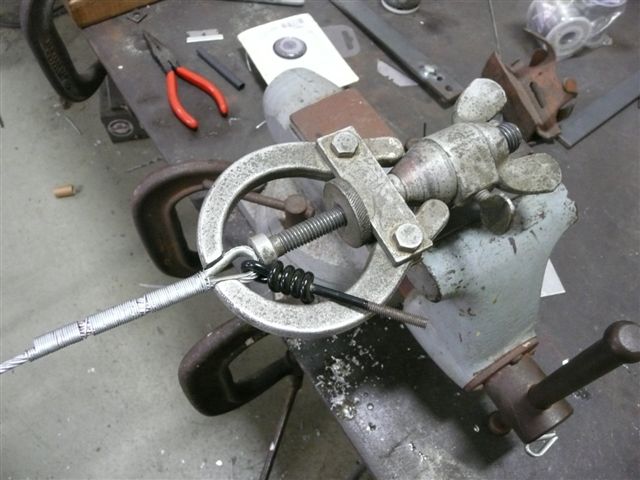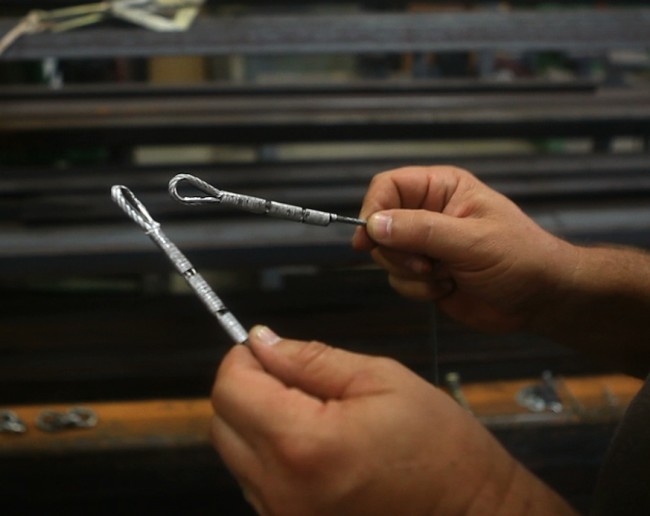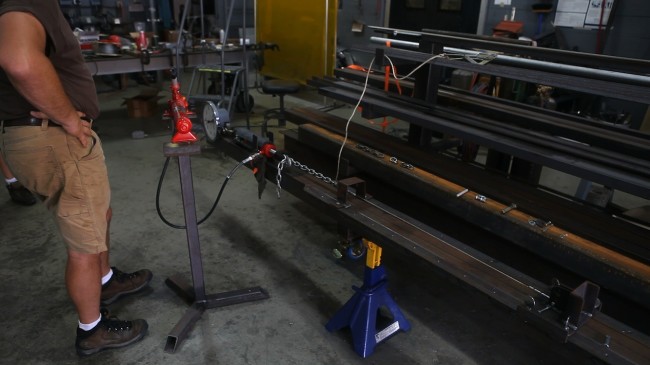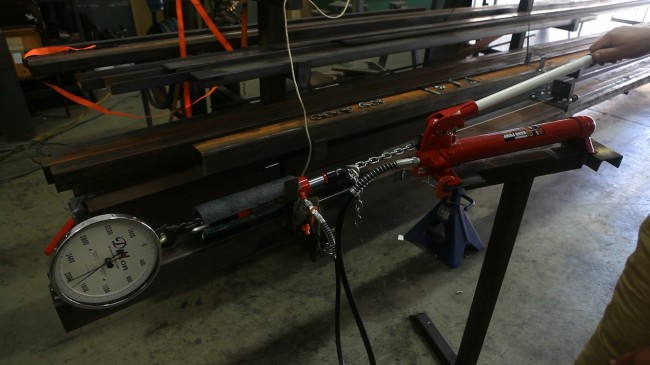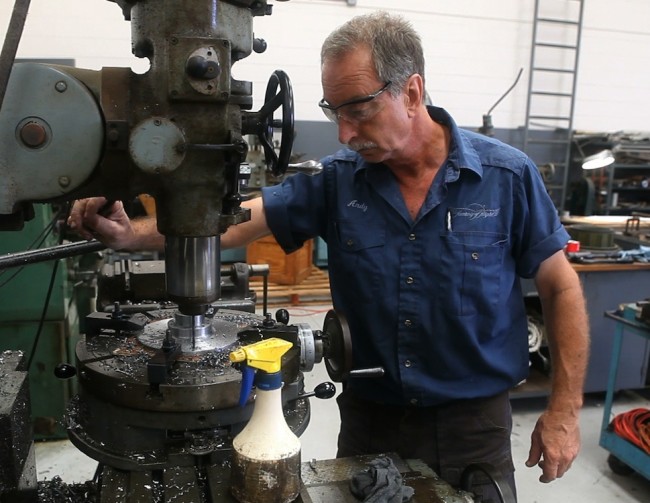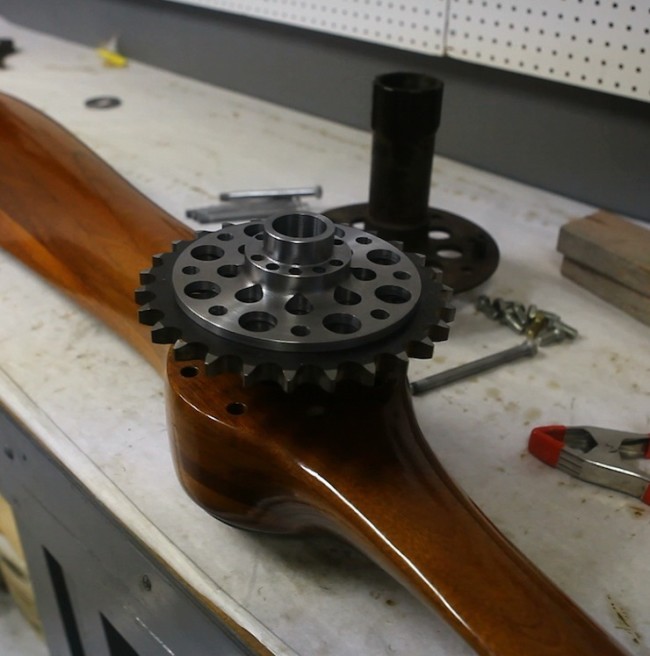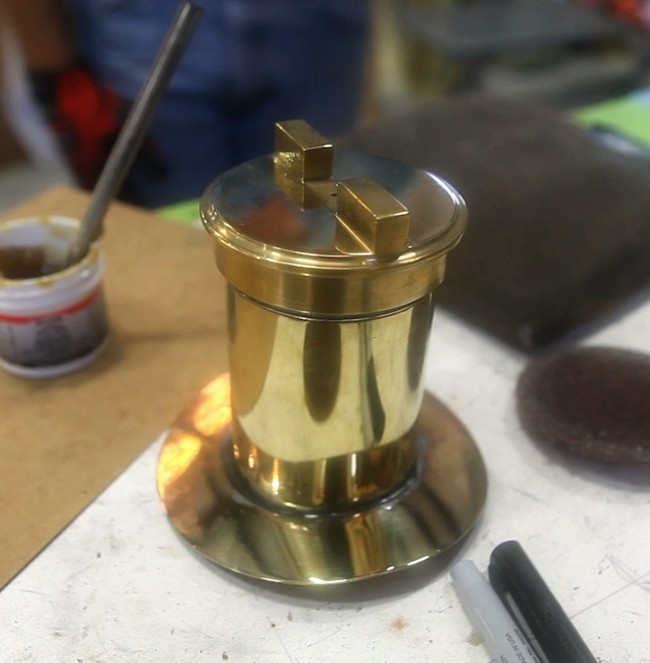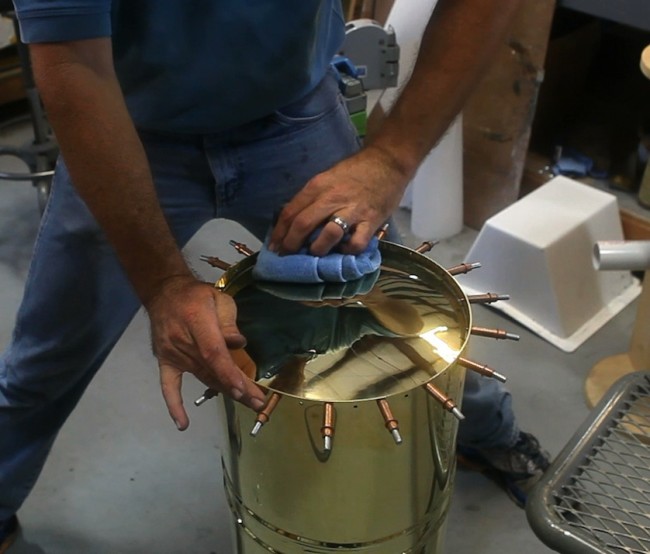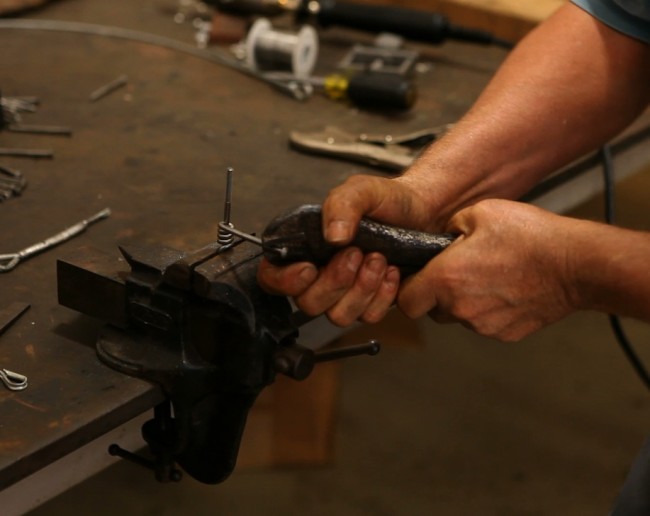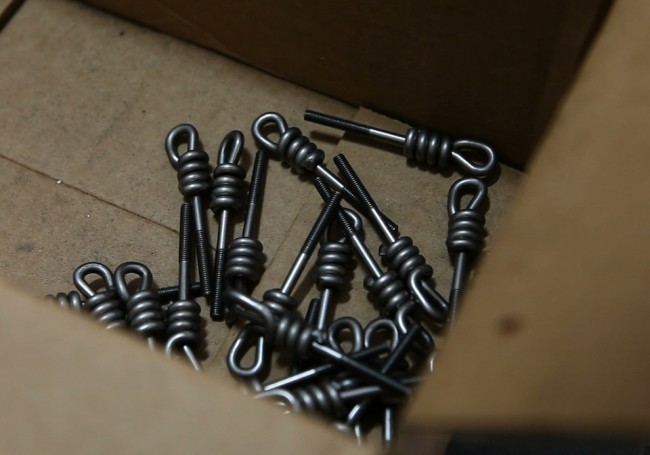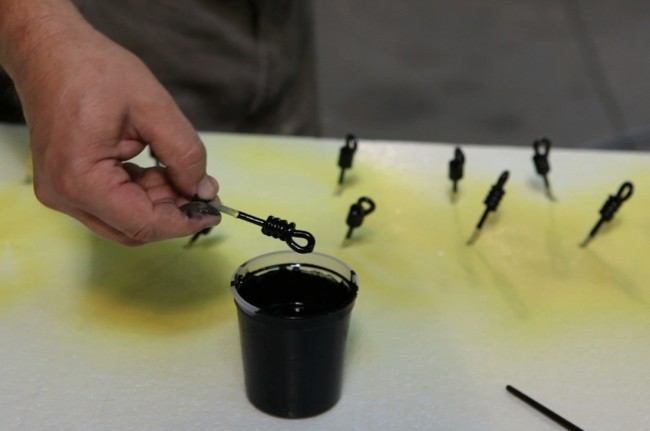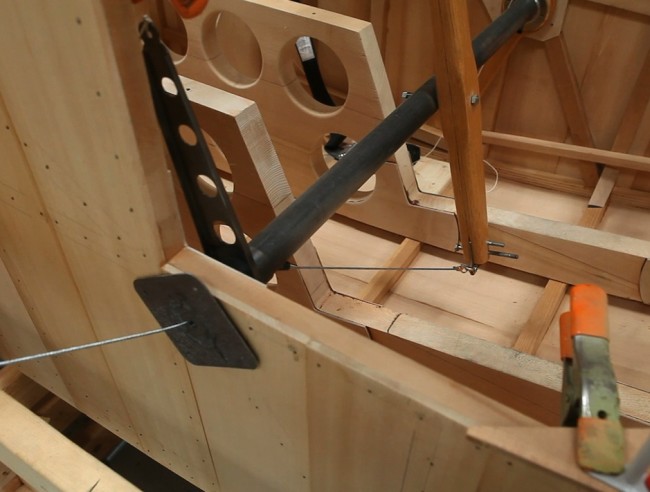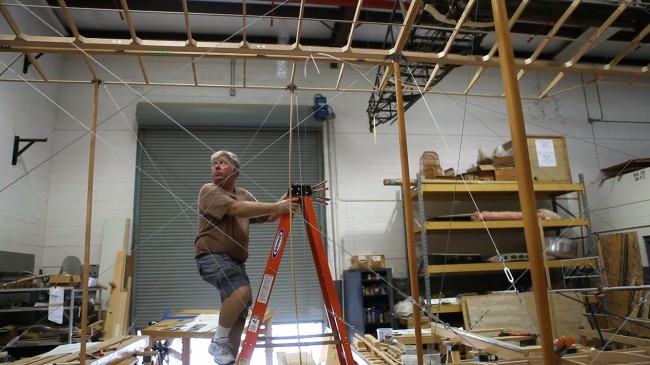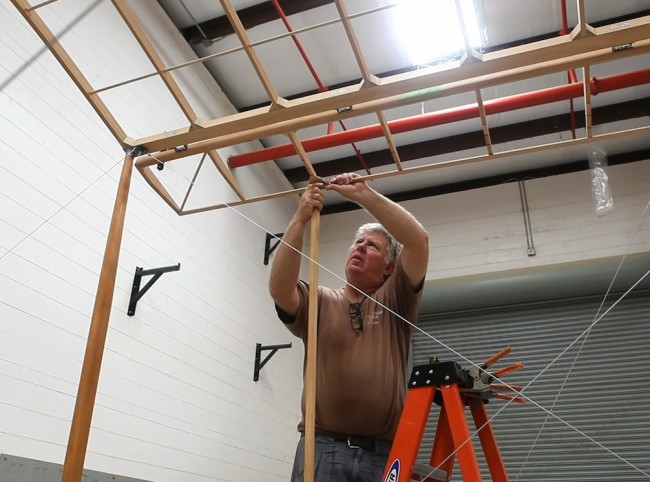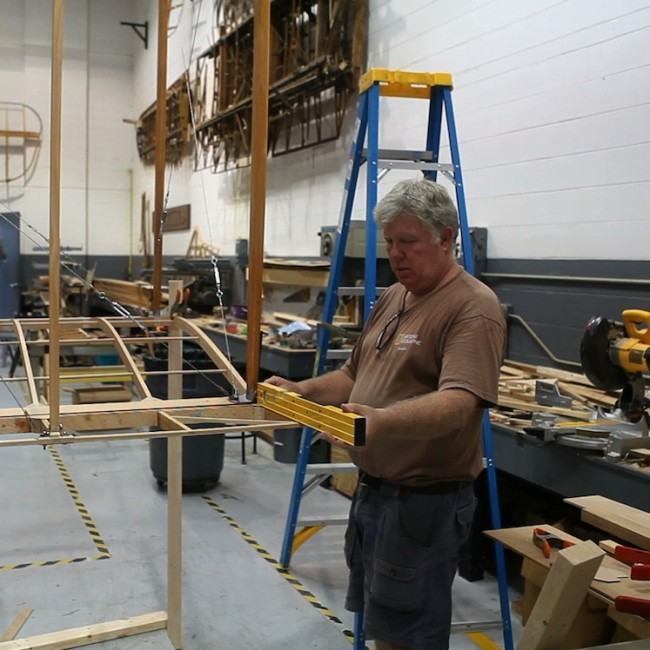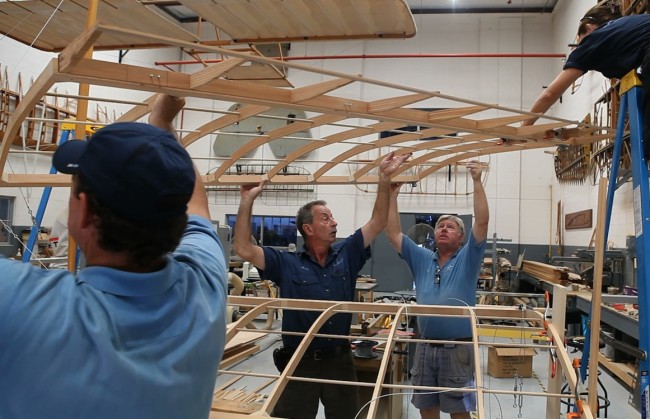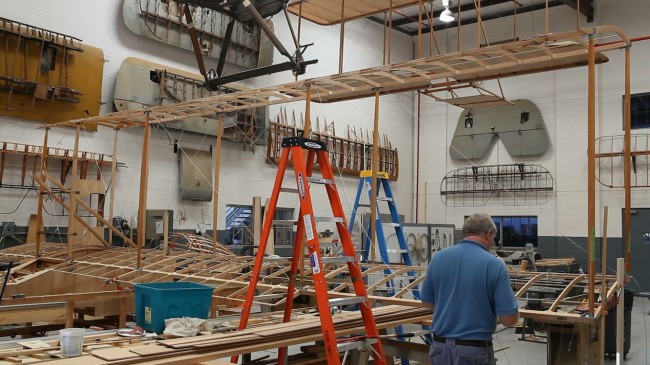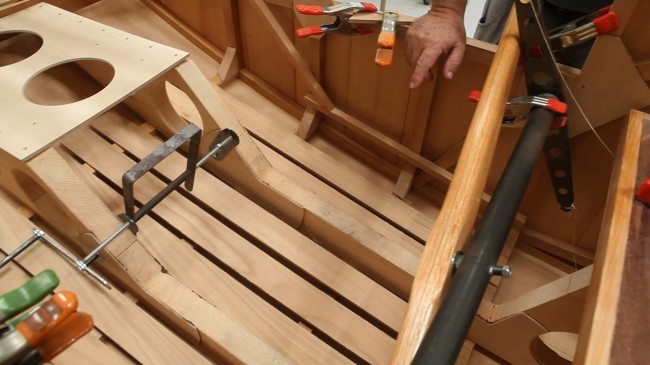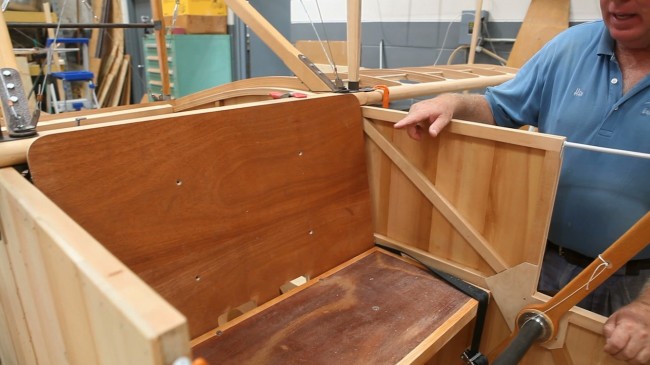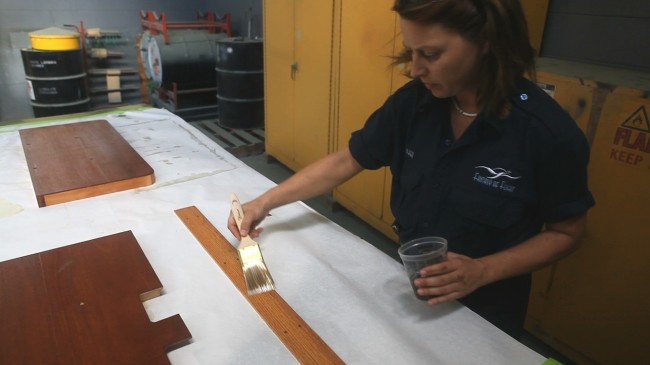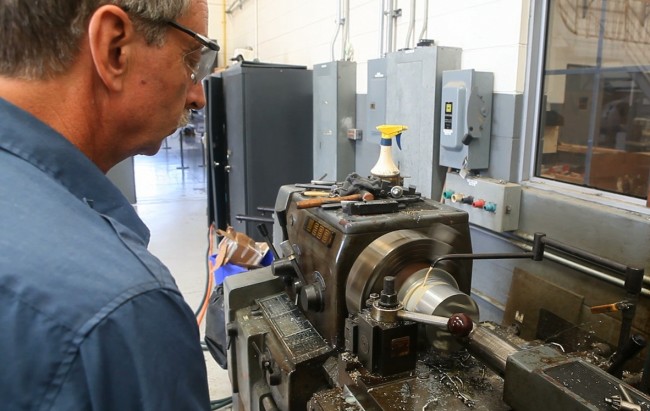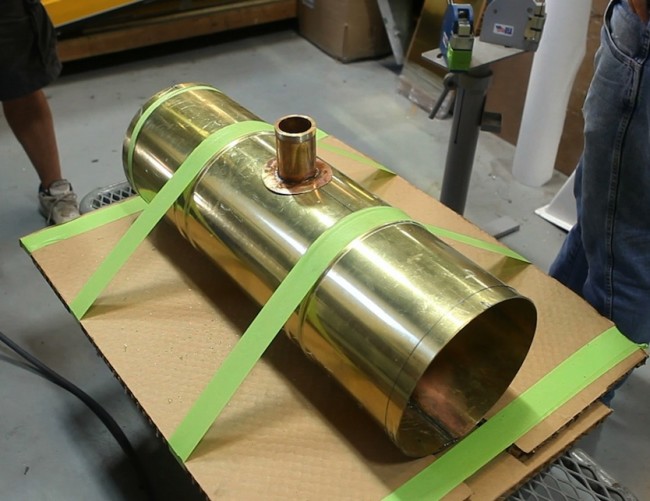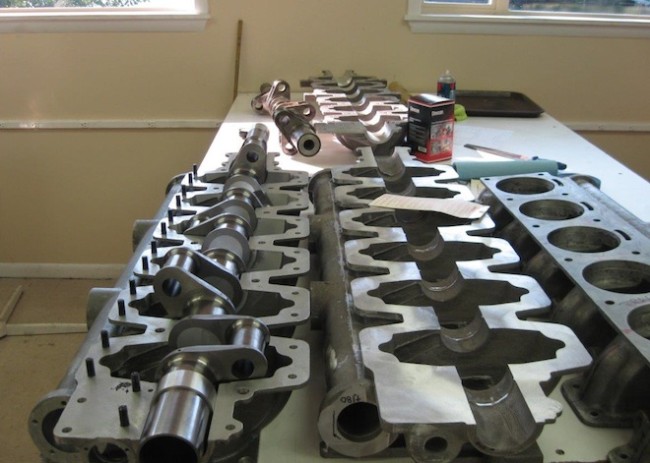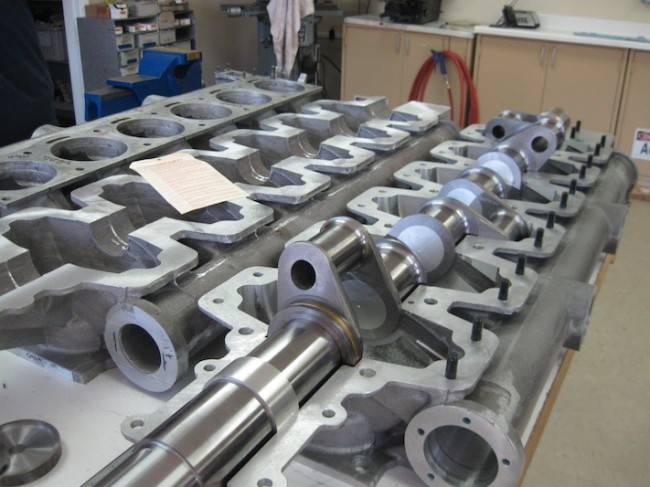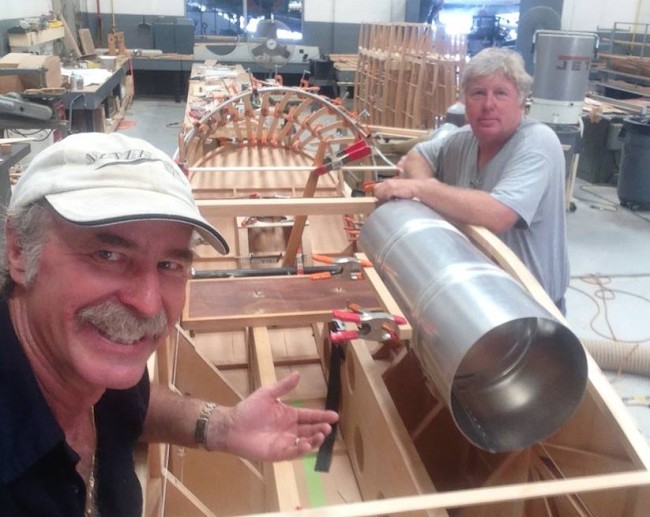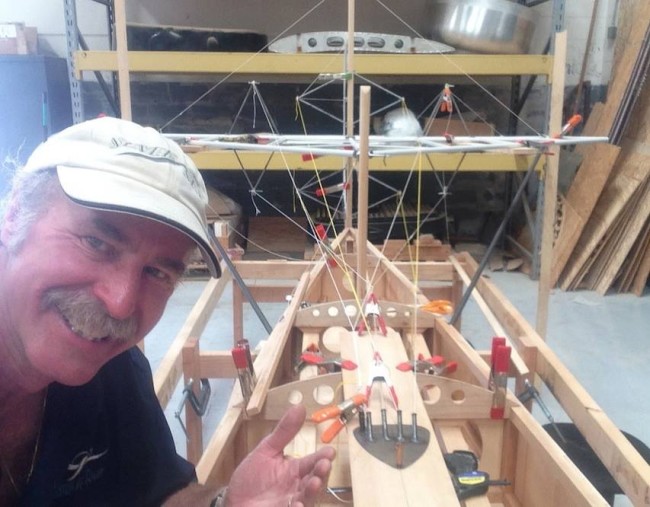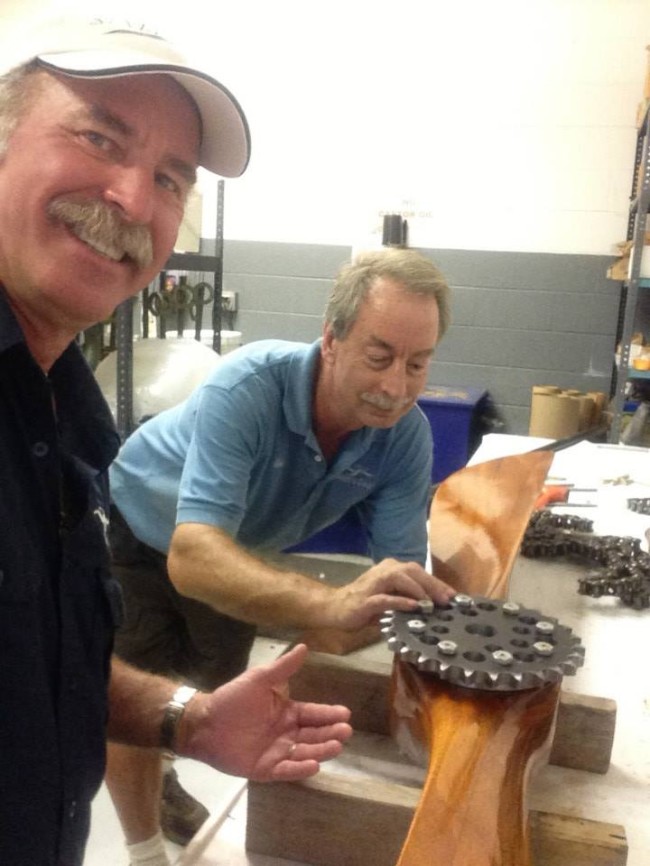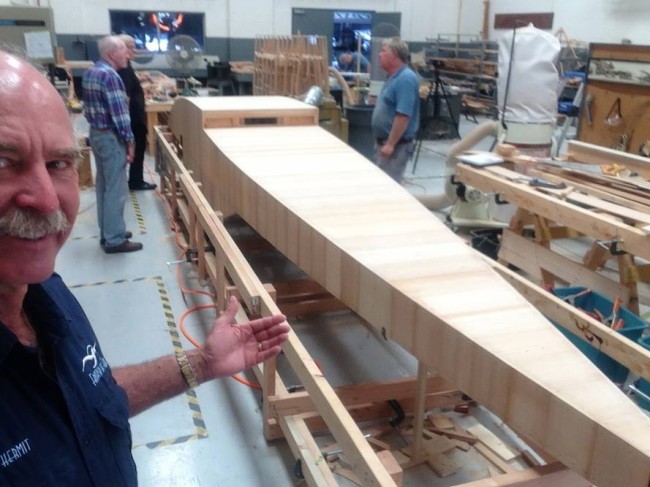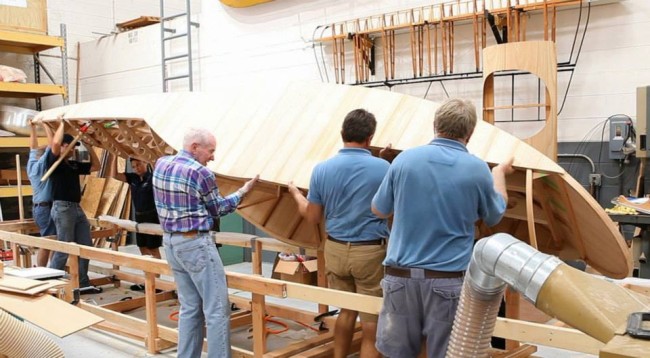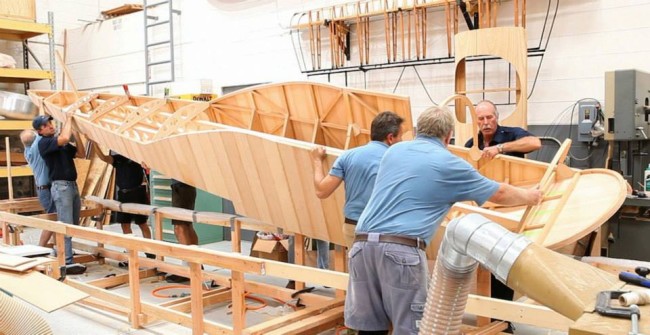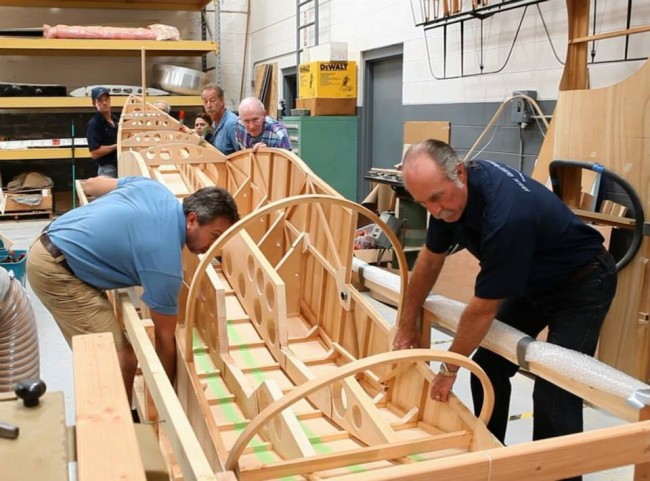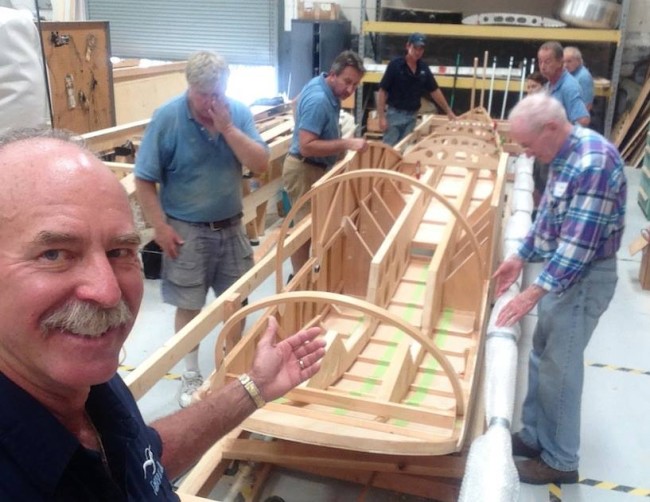Progress is being made in leaps and bounds as the end of the year looms. Here are some more visual updates from Kermit. Do you think we’ll make it in time?!
All of the fabric for the wing panels have been sewn up and Ken is preparing to cover some of the first pieces. Once we figure out exactly how we’re going to do this (how we attach it, glue it down, tack the under-surfaces, and the number of coats of dope) he’ll turn it over to someone else to grind them out. He’s got to get back on the hull for the final planking!
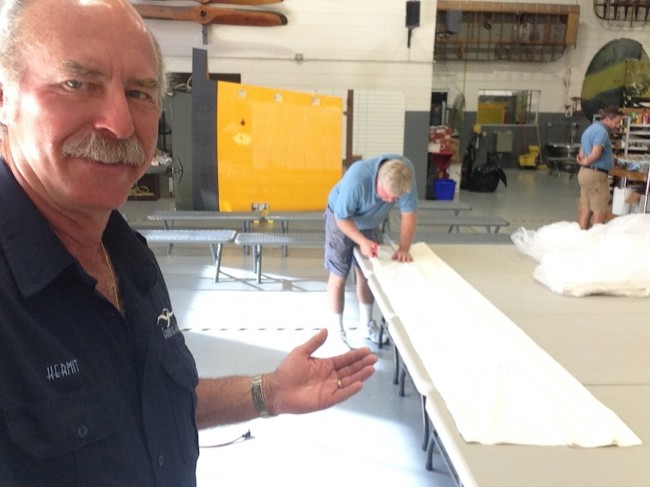
Paul and Dave have been jammin’ on prep-ing and priming all the fittings.
Once the fittings are media blasted, they dip them into a prep solution for a specific amount of time, dip them into the black oxide paint, and then hang them up to dry!
Andrea’s been varnishing and prep-ing the wings for cover. Kermit dug out some pics from our research trip to the Smithsonian that will help determine how it was originally done as they had another model Benoist in the collection. Once we decide on what material we’re going to use for the “drag and anti-drag” straps, we’ll install them on the wings and begin the process of covering 23 pieces!
